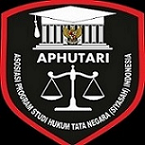Konsep Peserta Didik Dalam Al-Qur’an (Analisis Tarbawi Atas Q.S Al-Mujadilah: 11)
Abstract
Keywords
Full Text:
PDFReferences
Achmad, Jati, Soleh Hidayat, and Reksa Pribadi. “STRATEGI PENGEMBANGAN KARAKTER DISIPLIN BERBASIS KULTUR SEKOLAH Jati” 08, no. September (2023).
Amelia, Mela, Yanwar Arief, and Ahmad Hidayat. “HUBUNGAN ANTARA KEDISIPLINAN MELAKSANAKAN SHALAT WAJIB DENGAN PROKRATINASI AKADEMIK PADA MAHASISWA” 13, no. 1 (2019): 44–54.
Athiyah, Ummu. “Tujuan Dan Materi Pendidikan Dalam Perspektif Al-Qur ’ an” 5, no. 2 (2024): 27–40.
Bararah, Isnawardatul. “Efektifitas Perencanaan Pembelajaran Dalam Pembelajaran Pendidikan Agama Islam Di Sekolah.” Jurnal MUDARRISUNA: Media Kajian Pendidikan Agama Islam 7, no. 1 (2017): 131–47.
Fahrudin, Ahmad, and Arbaul Fauziah. “KONSEP ILMU DAN PENDIDIKAN DALAM PERSFEKTIF SURAT AL-MUJADILAH AYAT 11 Ahmad Fahrudin Institut Agama Islam Negeri Tulungagung Arbaul Fauziah Institut Agama Islam Negeri Tulungagung.” Kontemplasi: Jurnal Ilmu-Ilmu Ushuluddin 08, no. 01 (2020): 265–84.
Fauziah, Hapsah, and Sahal Mahpudz. “Pembentukan Karakter Rendah Hati Peserta Didik Dalam Al- Qur ’ an Surah Al -Furqan 63-64 Kajian Ilmu Pendidikan Islam,” no. c (2022): 1–8. https://doi.org/10.37968/masagi.v1i1.226.
Iqbal, Muhammad, Achfa Panjaitan, Eka Helvirianti, Nurhayati, and Qorina Ritonga. “Relevansi Pendidikan Karakter Dalam Konteks Pendidikan Islam: Membangun Generasi Berkarakter Islami” 4 (2024): 13–22.
Leny, Lince. “Implementasi Kurikulum Merdeka Untuk Meningkatkan Motivasi Belajar Pada Sekolah Menengah Kejuruan Pusat Keunggulan” 1, no. 1 (2022): 38–49.
Muid, Abdul, Dicky Achmad Zidane, and Farikha Irsyadah. “IlMUPENGETAHUAN (TAFSIR SURAT AL-MUJADALAH, 58:11. AL-ZUMAR, 39:9SERTA AL-TAUBAH, 9:122),” n.d., 1–8.
Noer, A L I, and Syahraini Tambak. “Konsep Adab Peserta Didik Dalam Pembelajaran Menurut Az-Zarnuji Dan Implikasinya Terhadap Pendidikan Karakter Di Indonesia” 14, no. 2 (2017).
Nuraeni. “PENDIDIKAN KARAKTER PADA ANAK USIA DINI” 3 (2016): 65–73.
Nursalin, Hisan. “Wawasan Al-Qur’an Tentang Pendidikan Dan Pengajaran” 14, no. 1 (2024): 43–68.
Palunga, Rina, and Marzuki. “PERAN GURU DALAM PENGEMBANGAN KARAKTER PESERTA DIDIK DI SEKOLAH MENENGAH PERTAMA NEGERI 2 DEPOK SLEMAN,” n.d., 109–23.
Putra, Kristiya. “IMPLMENTASI PENDIDIKAN AGAMA ISLAM MELALUI BUDAYA RELIGIUS (RELIGIOUS CULTURE)DI SEKOLAH” III, no. 2 (2015): 14–32.
Ridho, Ali. “Internalisasi Nilai Pendidikan Ukhuwah Islamiyah, Menuju Perdamaian (Shulhu) Dalam Masyarakat Multikultural Perspektif Hadis.” At-Tajdid: Jurnal Pendidikan Dan Pemikiran Islam 1, no. 02 (2019).
Sari, Hanisa, and Alwizar. “PRINSIP PENDIDIKAN DALAM AL-QUR’AN” 7693 (2024): 80–89.
Sari, Meiliza, and Muhammad Haris. “Penanaman Nilai-Nilai Agama Islam Dalam Pembentukan Karakter Dan Etika Siswa Di Tingkat Sekolah Dasar” 1 (2023): 54–71.
Supriatna, Nana, Hasyim Asy’ari, and M Afif Zamroni. “Implementasi Active Learning Dalam Pembelajaran PAI Di SMK Negeri Tegalwaru Purwakarta.” Irsyaduna: Jurnal Studi Kemahasiswaaan 4, no. 1 (2024): 146–62. https://doi.org/10.54437/irsyaduna.v4i1.1587.
Syah, Muhammad Erwan, and Deni Santi Pertiwi. Psikologi Belajar. Feniks Muda Sejahtera, 2024.
Umam, Chotibul. Inovasi PendidikanDOI: https://doi.org/10.24952/el-thawalib.v5i2.13420
Refbacks
- There are currently no refbacks.









Editorial Office Board :
Kampus UIN Syekh Ali Hasan Ahmad Addary Padangsidimpuan
Jl. T Rizal Nurdin No.Km 4, RW.5, Sihitang, Padangsidimpuan Tenggara, Kota Padang Sidempuan, Sumatera Utara 22733
 Jurnal El-Thawalib is licensed under a Creative Commons Attribution-ShareAlike 4.0 International License.
Jurnal El-Thawalib is licensed under a Creative Commons Attribution-ShareAlike 4.0 International License.
View My Stats






